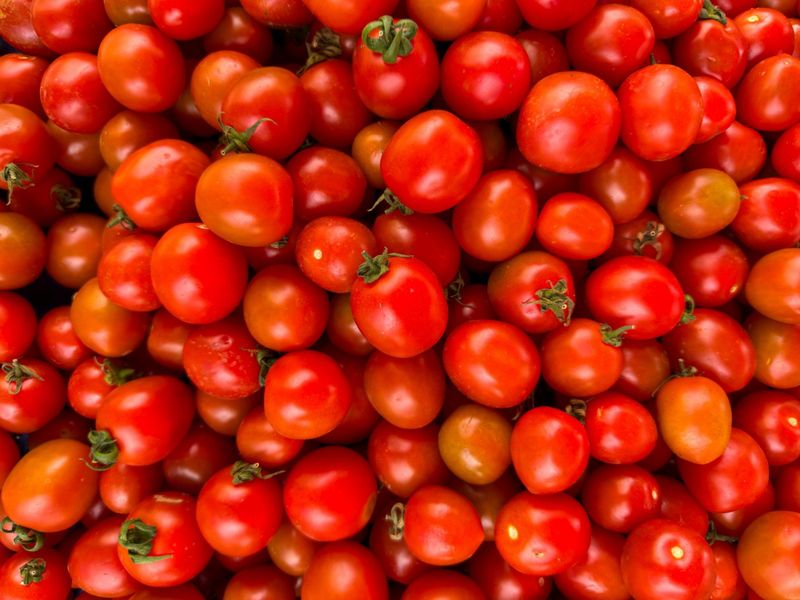Have you ever found yourself in a conversation with someone from another country, only to be gently corrected on the pronunciation of a word? It’s a common experience for many Americans. English, being a global language, is spoken differently around the world, and certain pronunciations that are typical in the U.S. can draw some amused glances from international friends. In this post, we’ll explore 12 words that often trip up Americans, causing the rest of the world to chuckle. This isn’t just about pointing out differences; it’s about embracing them and learning a little along the way.
1. Aluminium

The British pronounce it as ‘al-u-MIN-i-um’, including an extra ‘i’, while Americans say ‘a-lu-MIN-um’. This difference often raises eyebrows across the Atlantic. The British version aligns with the element’s original naming convention. For Americans, the word has been shortened, dropping a syllable. This alteration dates back to the early 19th century, when Noah Webster famously simplified many English spellings. Despite this historical tweak, the British version remains in scientific communities worldwide. Embracing these differences can lead to enjoyable, educational chats about language evolution.
2. Herb

In the U.S., ‘herb’ often drops the ‘h’, pronounced as ‘erb’, whereas the British pronounce the ‘h’ sound. This subtle difference can lead to misunderstandings. Historically, the British pronunciation is closer to the word’s French origins. In American English, the silent ‘h’ reflects a trend of simplifying speech. Chefs and gardeners might have a laugh when they hear this word pronounced differently. Regardless of how you say it, herbs remain a vital part of culinary arts everywhere. Enjoy the variety of accents while discussing thyme or rosemary.
3. Schedule

Americans pronounce it ‘SKED-jool’, while the British say ‘SHED-yool’. This variation often sparks lively debates in international meetings. The British pronunciation retains the original Greek influence, while the American version reflects a Germanic shift. This divergence is a reminder of English’s complex history. In the workplace, these differences can add a touch of humor to planning discussions. Whether it’s a ‘sked-jool’ or ‘shed-yool’, having a clear plan is key. It’s these little nuances that make language both challenging and charming.
4. Garage

Americans say ‘ga-RAZH’, while the British say ‘GAR-ij’. This difference in pronunciation can lead to some humorous exchanges. The American version softens the ‘g’, aligning it with French roots, whereas the British pronunciation is more straightforward. Both versions have their merits, influenced by historical language exchanges. For car enthusiasts and homeowners, using the term can be a subtle nod to one’s cultural background. No matter how it’s said, a garage remains a crucial space for both storage and shelter.
5. Tomato

The classic ‘to-MAY-to’ versus ‘to-MAH-to’ debate is a quintessential example of divergent pronunciation. In the U.S., the emphasis is on the ‘may’, whereas the British prefer ‘mah’. This difference often becomes a playful topic in language discussions. The American pronunciation reflects a shift towards phonetic efficiency, while the British retain a broader vowel sound. These variations add a layer of intrigue to everyday conversations. Whether you prefer one over the other, tomatoes are delicious either way.
6. Basil

Americans typically pronounce it ‘BAY-zil’, while in the UK, it’s ‘BAH-zil’. This subtle difference can surprise those unfamiliar with the variation. The American version emphasizes the first syllable, while the British pronunciation is softer. Despite these differences, the herb remains a favorite in kitchens worldwide. Discovering these distinctions can enhance one’s appreciation for linguistic diversity. Whether ‘bay’ or ‘bah’, basil adds flavor to any dish. It’s these small differences that make exploring language so fascinating.
7. Vase

Americans often say ‘vays’, while the British prefer ‘vahz’. This pronunciation difference can be an amusing topic in home decor discussions. The British version aligns with the original French pronunciation, while the American version reflects a Germanic influence. These variations highlight the richness of English as a global language. In design and decoration, understanding these nuances can enhance cultural awareness. Whether it’s a ‘vays’ or ‘vahz’, the beauty of a well-arranged bouquet is universally appreciated.
8. Zebra

In the U.S., it’s ‘zee-bra’, whereas the British say ‘zeh-bra’. This difference often leads to light-hearted corrections on wildlife tours. The American pronunciation simplifies the first syllable, while the British version retains the original vowel sound. This divergence illustrates the adaptability of English across continents. On safari, these pronunciations add color to interactions between guides and tourists. Whether ‘zee’ or ‘zeh’, zebras remain a striking sight in the wild. It’s these small differences that enrich our global conversations.
9. Leisure

Americans say ‘LEE-sure’, while the British prefer ‘LEH-sure’. This divergence in pronunciation can add humor to discussions about free time. The American version reflects a smoother vowel transition, whereas the British pronunciation retains a more open sound. These differences showcase the linguistic evolution of English over time. In conversations about hobbies and relaxation, these variations can spark friendly exchanges. Whether enjoying ‘lee-sure’ or ‘leh-sure’, the essence of leisure is universal. It’s these nuances that make conversations more interesting.
10. Privacy

Americans pronounce it ‘PRAI-vacy’, while the British say ‘PRIH-vacy’. This subtle difference often crops up in discussions about data protection. The American version emphasizes a long vowel sound, reflecting a trend towards clearer articulation. The British pronunciation maintains a shorter vowel, indicative of older linguistic traits. In the realm of cybersecurity, these distinctions can lead to insightful conversations. Whether ‘prai’ or ‘prih’, privacy remains a critical concern globally. It’s these small divergences that enrich our language.
11. Advertisement

Americans often say ‘ad-ver-TISE-ment’, while the British pronounce it ‘ad-ver-tis-ment’. This difference adds a layer of intrigue to marketing discussions. The British pronunciation preserves the original syllabic stress, while Americans have shifted the emphasis. This subtlety showcases the dynamic nature of language. In advertising, these variations can add a unique touch to campaigns. Whether ‘ad-ver-tise’ or ‘ad-ver-tis’, the goal is to engage audiences effectively. It’s these nuances that add depth to our understanding of English.
12. Route

Americans say ‘root’, while some prefer ‘rowt’. In the UK, it’s often ‘root’, though ‘rowt’ is understood. This difference in pronunciation can lead to interesting exchanges among travelers. The American preference for ‘rowt’ reflects a more phonetic approach, while ‘root’ has historical roots. Whether ‘rowt’ or ‘root’, understanding directions remains key on any journey. These variations make exploring language a constant adventure. Enjoy the diversity of accents and enrich your travel experiences. It’s these small differences that make language vibrant and exciting.

Well, hello there!
My name is Jennifer. Besides being an orthodontist, I am a mother to 3 playful boys. In this motherhood journey, I can say I will never know everything. That’s why I always strive to read a lot, and that’s why I started writing about all the smithereens I came across so that you can have everything in one place! Enjoy and stay positive; you’ve got this!

